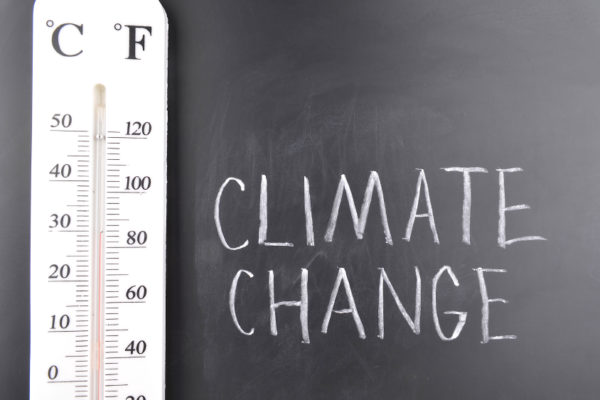I’ll make a prediction, which is a hallmark of science: I do not think that anything substantial will happen to combat the effects of climate change for the next 10 to 20 years, because that is how long it will take for the public to care.
As a scientist, I find extreme political rhetoric on both sides tough to watch. The right spreads falsehoods that abandoning fossil fuels will destroy the economy, or worse, that climate change is fake science. The left, meanwhile, incorrectly says we have 12 years to save the Earth.
In reality, the world won’t end and neither will the global economy. There will be severe damage, and it will cost us money to fix, but collective action to prevent it won’t happen because the underlying issue behind public inaction is not political, scientific or economic — rather, it is one of human nature.
I’ve spoken countless times about climate change with family, friends, strangers, acquaintances, frenemies, you name it. Most do not see climate change as a pressing matter. In fact, some still promote myths about liberals changing the tune from global warming to climate change. Or how it’s all a natural cycle. These (and many others) have been debunked many times over.
The science is clear: Humans are warming the planet. So why aren’t we all up in arms and making serious changes to how we live our daily lives?
Simply put, people don’t change how they live because of what an expert advises. People don’t want to take preemptive action, and instead their actions are usually reactionary, often following catastrophe like a patient suffering a heart attack despite a lifetime of warnings about diet and exercise. In busy, modern life, it’s easy to see why people remain undecided or uninformed about climate change, but to understand why they become misguided, one only needs to follow the money.
Some large companies stand to lose a lot of money if they fail to change their business models. But that money will not vanish from the global economy — it will go to another industry, like how home movie revenue went from rental to streaming on devices.
I don’t blame corporations and capitalism. Businesses just do what they do in a capitalist economy. Corporations, including those in oil and gas, are not full of evil people. Fossil fuels were a fantastic cheap energy choice for improving quality of life and propelled society to where we are today. But they are running their course. The science about climate change is overwhelmingly clear. So why so little action?
Sea level rise doesn’t mean scuba diving among underwater skyscrapers. The realities of climate change are mundane but still very costly: oceans swallowing land millimeter by millimeter, global temperatures warming fractions of a degree each year, and rainfall patterns slowly shifting alongside the march of the warming climate. Hurricanes are tragic events that leave behind a wake of destruction among the communities they strike, but sea level rise affects every coastal community on the planet. The magnitude is hard to grasp.
Insurance companies (and the reinsurers who insure them) can pay for only so much of the lost resources before they call it quits. So, then who pays? We taxpayers. And that moment, I believe, will be our climate heart attack. That’s when the public will finally care about climate change — when they have to pay for the damage. The timescale for that? About 10 to 20 years, when the coast is permanently flooded, and communities and businesses are forced to relocate.
Hope lies in individual actions, because individual actions add up to global change — either through the products we purchase, or the people we choose to elect. There are many scientists and experts interacting with the public on social media — these people are excellent sources of information.
Even the free market is finding solutions to mitigate the effects of climate change as new, environmentally conscious consumers emerge. But while the talk is slowly becoming mainstream, actions are lagging.
The warning bells have been ringing for decades. But, just like with a heart attack, until catastrophe strikes, people just won’t care. I hope my prediction is wrong, but chances are I will be right. Sadly.
Jud Partin is a research associate in the Institute for Geophysics at The University of Texas at Austin.
A version of this op-ed appeared in the Houston Chronicle, Austin American Statesman, Waco Tribune Herald, Lubbock Avalanche Journal and the San Antonio Express News.




